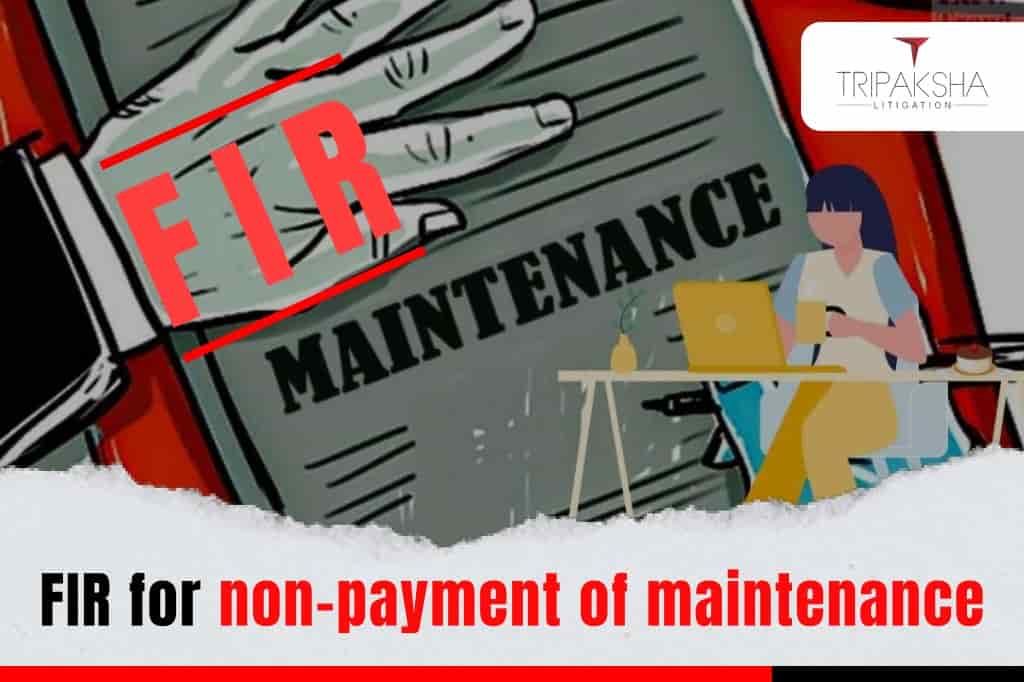Introduction
According to Law Lexicon the term maintenance means, “Maintenance refers to means of subsistence, supply of necessaries and convenience; aid, support, assistance; the support which one person who is bound by law to do so, gives to another for his living”.
Protection of Women against Domestic Violence Act
Section 31 of the Act is a key provision and it is the heartbeat of the Act to regulate the violator of protection order passed u/s 18 of the Act. The question as to whether the law enforcing authority has jurisdiction to register the Criminal Case u/s 31 of the Act for non-payment of maintenance allowance that is in breach of order u/s 18 of the Act.
The High Court of Madras answered affirmatively and clarified that the law enforcing authority has jurisdiction to register the case. It was further clarified that the authority can proceed in accordance with law for every breach of order without any legal bar for the reason that each breach of order amounts to a continuing offence.
Amalraj v State and Another Citation: 2023 LiveLaw (Mad) 190: Case Analysis
The High Court of Madras Justice KK Ramakrishnan, Madurai bench, observed that Section 31 of the Protection of Women against Domestic Violence Act (DV Act for short) was enacted with a purpose to ensure social justice. It aims to regulate the violator of a protection order. In this case, the High Court of Madras dealt with an important question i.e. can an FIR be registered by police for non-payment of maintenance?
It was stated by the court that “the transformation of the process of execution of maintenance order into penal statute is a measure of social justice and specially enacted to protect women and children and would fall within the constitutional sweep of Article 15(3) and reinforced under Article 39.”
Brief facts of the case
In the instant case, the petitioner married one Kanikaimarry (the second respondent). Out of the wedlock, they are blessed with two female children. Some dispute arose in their married life and hence, a petition was filed u/s 18 and 19 of the DV Act wherein she claimed maintenance and protection.
An order was passed by the Judicial Magistrate granting maintenance of Rs.3,000/- to the wife and Rs.5,000/- to the children. The Magistrate also passed an order giving protection to the wife.
Being aggrieved by the order of the Judicial Magistrate, an appeal was filed by the petitioner and it was partly allowed. The maintenance awarded by the Judicial Magistrate to the wife was set aside and in respect of Rs.5,000/- to their children was confirmed.
The wife lodged a complaint u/s 31 of the DV Act wherein she stated that the petitioner did not pay the monthly maintenance amount. It was forwarded to the first respondent i.e. the police and the police registered FIR.
Issue before the High Court
Whether the non-payment of maintenance amount is a breach of protection order for which the law enforcing authority has jurisdiction to register the Criminal case under Section 31 of the Act?
Observation of the High Court
It was observed by the Court that the DV Act is enacted with a penal provision with an intention to supress the mischief of delayed execution proceeding regarding maintenance award. That the Act is passed to provide the speedy remedy to the victim and to avoid destitution and vagrancy.
The High Court observed that “Before commencement of the DV Act, 2015, due to the existing cumbersome procedure to enforce the maintenance order by means of distress warrant procedure under Section 125(3) Cr.P.C as well as distraint warrant procedure under Section 128 Cr.P.C, the aimed result of getting maintenance amount in a speedy manner, has been thwarted”.
The reliance was placed by the Court on the following judgments:
The case of Bhagwan Dutt v. Kamla Devi, (1975) 2 SCC 386, was taken into consideration by the High Court, where it was held that “Their object is to compel a man to perform the moral obligation which he owes to society in respect of his wife and children. By providing a simple, speedy but limited relief, they seek to ensure that the neglected wife and children are not left beggared and destitute on the scrap-heap of society and thereby driven to a life of vagrancy, immorality and crime for their subsistence. …The jurisdiction conferred by the section on the Magistrate is more in the nature of a preventive, rather than a remedial jurisdiction; it is certainly not punitive”
The case of Danial Latifi v. Union of India, (2001) 7 SCC 740, was also referred to where it was held that “It is a small solace to say that such a woman should be compensated in terms of money towards her livelihood and such a relief which partakes basic human rights to secure gender and social justice is universally recognised by persons belonging to all religions.”
It was noted by the Court that the husband had been paying maintenance regularly, and hence the registering of case without conducting a proper enquiry was incorrect. The High Court quashed the proceedings before the Judicial Magistrate and allowed the petition filed by the husband.
It was further noted by the High Court that to prevent women from facing needless distress, destitution and starvation, the enactment of the DV Act was done to transform the existing preventive provision into punitive provision to meet the society’s changing needs. That in the case of of Badshah v. Urmila Badshah Godge reported in 2014 (1) SCC 188, the Supreme Court has emphasised on the same issue.
Conclusion
There is an absolute transformation in the aim and object of preventive maintenance proceedings provided under the Code of Criminal Procedure into a punitive one. The object of the proceeding with regard to maintenance under the Code does not aim to punish a person for his past neglect. The provision aims to ensure by compelling husband to make payment to their wife and children. It is the moral duty of the husband to support their family that has transformed into legal obligation leading to registration of a criminal case, arrest of husband and conviction, in case of neglect and reluctance to pay.








